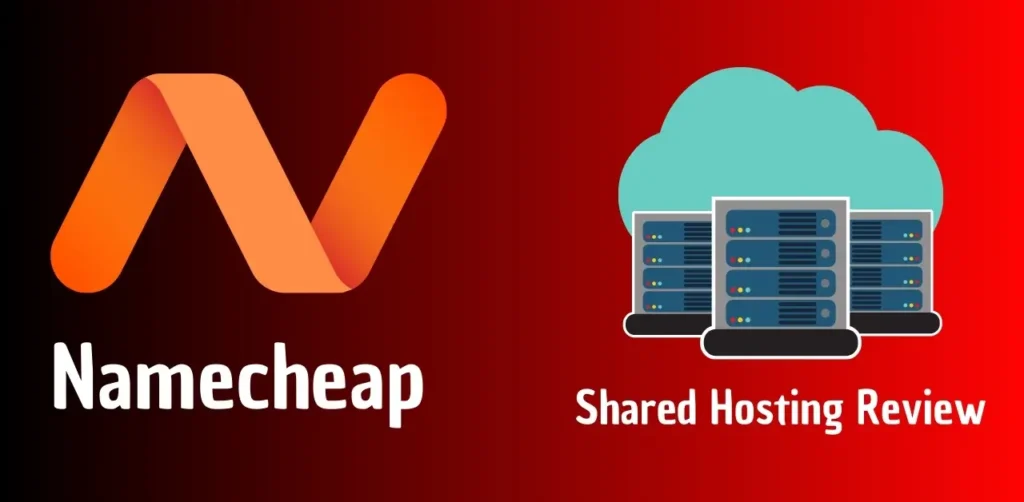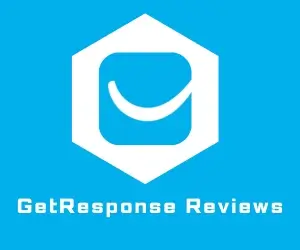
When you’re looking for a reliable, budget-friendly web host, Namecheap Shared Hosting is a popular option that ticks many boxes. Known for its affordable pricing, excellent uptime, and user-friendly interface, Namecheap makes web hosting accessible to everyone. In this review, we’ll go through Namecheap’s shared hosting features, pricing plans, and give an honest rating based on performance and value.
Features of Namecheap Shared Hosting
Unlimited Bandwidth and Storage
Most of the Namecheap shared hosting plans offer unlimited bandwidth, which means you won’t have to worry about exceeding traffic limits. Depending on the plan, you’ll get ample SSD storage, making it easy to host multiple websites or larger files.
Free Domain Name
With all Namecheap shared hosting plans, you get a free domain for the first year. This is a great perk, especially for beginners who are setting up their website from scratch.
Free SSL Certificates
In today’s internet world, having a secure website is crucial. Namecheap includes free SSL certificates with all shared hosting plans, which enhances your website’s security and boosts your SEO ranking.
Easy-to-Use cPanel
Managing your site becomes a breeze with cPanel, a popular and intuitive control panel that Namecheap provides. From installing WordPress to managing emails, everything is just a few clicks away.
Visit Namecheap Website for more Details
Namecheap Hosting Pricing
Stellar Plus
-
Domain name
-
Unlimited websites
-
Unmetered SSD
-
Unlimited mailboxes
-
AutoBackup
-
Website Builder
-
AI Tools
Stellar Business
-
Domain name
-
Unlimited websites
-
50 GB SSD
-
Unlimited mailboxes
-
AutoBackup & Cloud Storage
-
Website Builder
-
AI Tools
Performance and Uptime
Speed Test Results
While Namecheap shared hosting offers budget hosting, the performance is surprisingly good. In speed tests, Namecheap delivers competitive load times, especially when compared to other hosting providers in the same price range.
Uptime Guarantee
Namecheap promises a 99.9% uptime guarantee, ensuring your website is online almost all the time. During testing, there were minimal downtimes, which means you can trust your site to be accessible for visitors at all times.
Security Features
Free SSL and Backups
Security is a priority with Namecheap shared hosting, and every plan includes free SSL certificates. Additionally, Namecheap offers free daily backups, giving you peace of mind knowing your data is safe.
DDoS Protection
Namecheap includes DDoS protection, safeguarding your website from malicious attacks that can disrupt your site’s functionality or compromise your data.
Customer Support
24/7 Live Chat
If you run into any issues, Namecheap offers 24/7 live chat support. Their support team is responsive, though there are occasional wait times during peak hours.
Knowledgebase and Tutorials
Namecheap also has a comprehensive knowledgebase, which is packed with tutorials, guides, and FAQs to help you troubleshoot problems on your own.
User-Friendly Interface
Intuitive Control Panel
With its intuitive cPanel, even beginners will find it easy to manage their hosting account, install WordPress, and handle emails and databases.
Easy Site Migration
If you’re switching from another web host, Namecheap offers free site migration services. This feature allows you to move your website to Namecheap without downtime or technical difficulties.
Namecheap vs Competitors
Comparison with Bluehost

Here’s a detailed comparison between Namecheap and Bluehost shared hosting, focusing on key features to help you decide which might be the better option for your needs.
1. Pricing
- Namecheap: Generally offers more affordable pricing plans. Their entry-level shared hosting plans start at around $1.58/month. Renewal prices remain competitive.
- Bluehost: Bluehost’s basic shared hosting plan starts at around $2.95/month (promotional), but the renewal rates increase significantly after the first term, often reaching $9.99/month.
2. Performance and Uptime
- Namecheap: Offers a 100% uptime guarantee for shared hosting, which is impressive. In terms of performance, Namecheap is known for offering solid speeds, though not the fastest in the market.
- Bluehost: Provides a 99.9% uptime guarantee. Bluehost is generally more performance-focused, and their integration with Cloudflare CDN boosts speed, though it’s not available on all plans.
3. Ease of Use
- Namecheap: Comes with a user-friendly dashboard and cPanel for managing your websites. It’s relatively easy for beginners, though its interface may not be as polished as Bluehost’s.
- Bluehost: Known for its intuitive interface, Bluehost provides customized cPanel integration. It’s especially user-friendly for WordPress users due to the seamless integration with WordPress.org, making it very beginner-friendly.
4. Customer Support
- Namecheap: Offers 24/7 live chat and ticket support. They’re known for providing relatively fast and knowledgeable customer service, especially for a budget host.
- Bluehost: Also provides 24/7 support via live chat, phone, and tickets. However, Bluehost’s support has had mixed reviews in recent years, with some customers noting slower response times
5. Features
- Namecheap: Includes features like free SSL certificates, a free website builder, backups, and unmetered bandwidth even on their lowest-tier plan. Namecheap also offers free privacy protection for domains.
- Bluehost: Also provides free SSL certificates, but only includes a free domain for the first year (whereas Namecheap often offers cheaper domain registration). Bluehost offers automatic backups on higher-tier plans but not on the basic plan. Bluehost’s 1-click WordPress installs and included tools like email hosting make it great for WordPress websites.
6. Security
- Namecheap: Provides robust security features, including free SSL for life, two-factor authentication, and free domain privacy protection.
- Bluehost: Includes SSL certificates, and you can add advanced security features like SiteLock, but many of these are premium add-ons, which increases the cost.
7. Scalability
- Namecheap: Offers a range of upgrade options, including VPS and dedicated hosting plans, making it a good choice for users who might scale up in the future.
- Bluehost: Has a smoother path for scaling with its VPS, dedicated hosting, and WordPress-specific hosting, including advanced WooCommerce plans.
8. WordPress Hosting
- Namecheap: Provides WordPress hosting but isn’t as specialized or tightly integrated as Bluehost.
- Bluehost: Officially recommended by WordPress.org. Bluehost’s one-click WordPress installations, automatic updates, and strong WordPress-centric features make it a superior choice for WordPress hosting
9. Money-back Guarantee
- Namecheap: Offers a 30-day money-back guarantee.
- Bluehost: Also provides a 30-day money-back guarantee.
10. Data Center Locations
- Namecheap: Has data centers in the U.S. and U.K., providing options based on your target audience.
- Bluehost: Primarily has data centers located in the U.S. only.
Final Thought
- Choose Namecheap if you’re looking for a budget-friendly option with free SSL for life, and you’re fine with moderate performance but want good customer support.
- Choose Bluehost if you’re focused on WordPress hosting, want better performance, and are okay with higher renewal prices but need stronger scalability and integrations for growth.
Both hosts cater to different user needs, so it depends on your budget, website type, and future plans.
Comparison with GoDaddy

When comparing Namecheap and GoDaddy shared hosting services, several factors come into play, such as pricing, features, performance, and customer support. Here’s a breakdown of how they stack up against each other:
1. Pricing
- Namecheap: Generally more affordable, especially for their initial plans. Shared hosting plans start at a lower price, often with discounted rates for the first year. Offers a free domain name for the first year and free migration.
- GoDaddy: Tends to be more expensive, especially upon renewal. The pricing structure can increase significantly after the first term. Does offer promotions but usually not as competitively priced as Namecheap.
2. Performance and Uptime
- Namecheap: Boasts a solid uptime guarantee of 99.9%. Servers are generally fast and offer consistent performance, but may not be as robust as premium hosting services.
- GoDaddy: Also guarantees 99.9% uptime but has a more extensive infrastructure and data centers. Performance can be inconsistent at times, especially with shared hosting, but higher-end plans offer better speed
3. Features
- Namecheap: Comes with free domain privacy protection, which GoDaddy charges extra for. Offers free SSL certificates for the first year (then paid thereafter). Daily backups are included in some plans. Supports cPanel, making it easy to manage your website.
- GoDaddy: Offers SSL certificates, often at an additional cost. Provides a user-friendly control panel and 1-click installs for WordPress and other CMSs. Includes some basic site-building tools, but many advanced tools come at a higher cost. Provides fewer freebies compared to Namecheap.
4. Customer Support
- Namecheap: Known for excellent customer support, with 24/7 live chat and a strong reputation for resolving issues quickly. Also provides a knowledge base and community forum.
- GoDaddy: Offers 24/7 customer support via phone and chat, but sometimes criticized for long wait times. Support quality is often inconsistent depending on the issue.
5. Ease of Use
- Namecheap: Provides cPanel, which is easy to use and well-known in the industry. Migration tools and straightforward setups make it beginner-friendly.
- GoDaddy: Has its own custom control panel in some plans, but also offers cPanel on certain hosting tiers. The interface is beginner-friendly, though some users find it cluttered with upsells.
6. Security
- Namecheap: Includes a free PositiveSSL certificate for the first year on most plans. Provides free domain privacy, adding an extra layer of security for domain registration. Daily backups are available on higher-tier plans.
- GoDaddy: SSL certificates are an extra cost unless included in higher-tier plans. Provides website security features, but many advanced options like malware scanning come at an additional charge.
7. Website Builder Tools
- Namecheap: Offers the EasyWP platform for WordPress sites, designed for simplicity. Has a limited but functional drag-and-drop builder for beginners.
- GoDaddy: Provides a proprietary website builder that is user-friendly but can be restrictive in terms of design flexibility. Offers stronger website building tools than Namecheap, especially for non-WordPress users
8. Email Hosting:
- Namecheap: Provides free email hosting for the first two months with some plans. The paid email hosting is affordable and integrates well with hosting packages.
- GoDaddy: Email hosting is an add-on and can become costly over time. Offers Microsoft 365 email integration, which is beneficial for business users.
Final Thought
- Namecheap is more affordable and comes with a lot of free perks like domain privacy and SSL, making it a better option for budget-conscious users or small businesses.
- GoDaddy is pricier but offers a more extensive infrastructure and more powerful tools for businesses looking for scalability, though many features come at an additional cost.
For beginners or those looking for cost-efficient solutions, Namecheap often presents better value, whereas GoDaddy can be a stronger choice for larger businesses looking for more robust tools and integrations.
Pros and Cons of Namecheap Shared Hosting
- Competitive pricing
- Free domain and SSL
- Unlimited bandwidth
- User-friendly cPanel
- Free daily backups
- Performance is decent but not top-tier
- Limited storage on entry-level plans
- Customer support can be slow during busy times
Who Should Use Namecheap Shared Hosting?
If you are looking for a budget-friendly hosting solution for a personal blog, small business, or portfolio site, Namecheap shared hosting is an excellent option. It’s also ideal for users who are just starting out with web hosting and want an affordable, straightforward solution.
Conclusion and Rating
Overall, Namecheap shared hosting is an excellent choice for beginners and small website owners looking for reliable, low-cost hosting. With a variety of plans, unlimited bandwidth, free domain names, and strong security features, it’s a solid option. While performance could be better, especially for larger sites, the affordability and ease of use make it a great pick for budget-conscious users.
Our Rating: 4.3/5 ⭐
FAQ'S
Shared hosting on Namecheap means multiple websites share the same server resources, such as storage, memory, and CPU, making it an affordable option for hosting websites.
The best Namecheap hosting depends on your needs, but their Stellar Plus plan offers a good balance of features and affordability, ideal for personal or small business websites.
Shared hosting is a general-purpose hosting where you can host any website, while WordPress hosting is optimized specifically for WordPress sites, offering better performance, security, and WordPress-specific features.
Yes, Namecheap shared hosting is secure and includes features like free SSL certificates, regular backups, and security monitoring to protect your website.
Yes, Namecheap hosting is considered good for its affordability, reliable uptime, and user-friendly interface, making it a solid choice for individuals and small businesses.
Shared hosting is reliable for small to medium-sized websites with moderate traffic, though performance may be affected if other sites on the same server experience high traffic.



